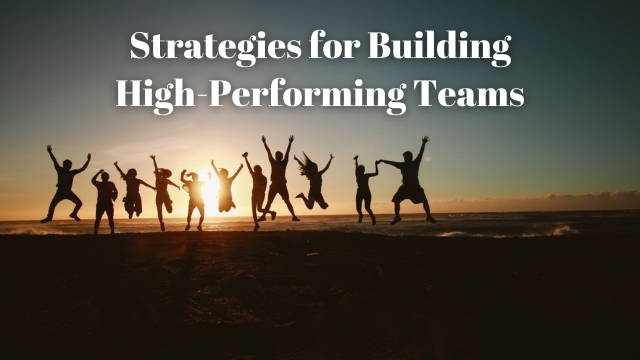Building a high-performing team is essential for achieving great results in any organization. It’s not just about gathering a group of talented individuals; it’s about creating a cohesive unit that works well together. Let’s explore some effective strategies for creating and nurturing an excelling team.
Understanding Team Dynamics
Recognizing and understanding these dynamics is the first step in building a high-performing team. This means observing team members’ interactions, identifying strengths and weaknesses, and seeing how different personalities mesh. Acknowledging these dynamics helps create a harmonious working environment where everyone feels valued and understood.
Setting Clear Goals
A high-performing team needs direction. Staying focused and motivated is easier when everyone knows what they are working toward. Setting goals also helps in measuring progress and success. It’s important to ensure these goals are specific, achievable, and aligned with the organisation’s overall vision.
Fostering Collaboration
When team members work together, they can pool their skills and knowledge to solve problems and achieve goals. Encouraging collaboration means creating opportunities for team members to work on projects together, share their expertise, and support one another. This not only enhances productivity but also builds stronger relationships within the team.
Recognizing and Celebrating Achievements
Recognizing and celebrating achievements is crucial for maintaining team morale. When team members see their hard work acknowledged, it boosts their motivation and commitment. Recognizing individual and team successes reinforces a positive and productive atmosphere.
Providing Opportunities for Growth
High-performing teams are made up of individuals who are constantly growing and developing. Providing opportunities for professional development helps team members expand their skills and knowledge. This can include training programs, workshops, or mentoring.
Building Trust and Respect
Trust and respect are the foundation of any high-performing team. Respecting each other’s ideas, contributions, and differences helps in creating a positive work environment. When team members trust and respect one another, they are more likely to collaborate effectively and work toward common goals.
Encouraging Innovation
Innovation is often driven by a team’s willingness to experiment and think outside the box. Encouraging team members to bring new ideas and approaches can lead to creative solutions and improvements. Creating a culture where innovation is welcomed and supported helps in keeping the team dynamic and forward-thinking. It also makes team members feel valued for their contributions.
Managing Conflicts Effectively
How conflicts are managed can make or break a team’s performance. Addressing conflicts promptly and constructively is important. This involves listening to all sides, finding common ground, and working toward a resolution that benefits the team. Effective conflict management helps in maintaining a positive and productive work environment.
Building a high-performing team is a multifaceted process that involves understanding team dynamics, setting clear goals, and fostering effective communication. Collaboration, recognition, and growth opportunities play significant roles in team success. Trust, respect, and innovation are essential for maintaining a positive and dynamic work environment. By focusing on these strategies, you can create a team that not only achieves great results but also enjoys working together and growing as a unit.


